Back in the pack | 7 WorldSBK entries you may have forgotten about
WorldSBK hasn't always just been about your Kawasaki ZX-10RRs and Ducati Panigales... remember when these machines graced the grid?

MotoGP may be regarded as the pinnacle of motorcycle racing but the WorldSBK Championship has over the last three decades certainly made a good fist of matching its counterpart for fairing-bashing racing and close competition.
Indeed, there is something very appealing about watching sportsbikes you and I can go out and purchase competing for one the sport's bigger prizes... after all, win on Sunday, buy on Monday.
However, whereas MotoGP machines are honed beasts designed from the ground up, WorldSBK is perhaps a more applicable platform for manufacturers to market their wares to the general public. But that just raises the stakes for victory - after all, who wants to buy a sportsbike that races around at the back of the field?
Today we have five - Kawasaki, Yamaha, Honda, BMW and Ducati - gunning for glory with varying degrees of success, but these are well-established front-running brands competing at the highest-level.
What of the lesser-known models that have tackled the Superbike ranks over the years? Some of these may have slipped your memory… so allow us to jog it for you.
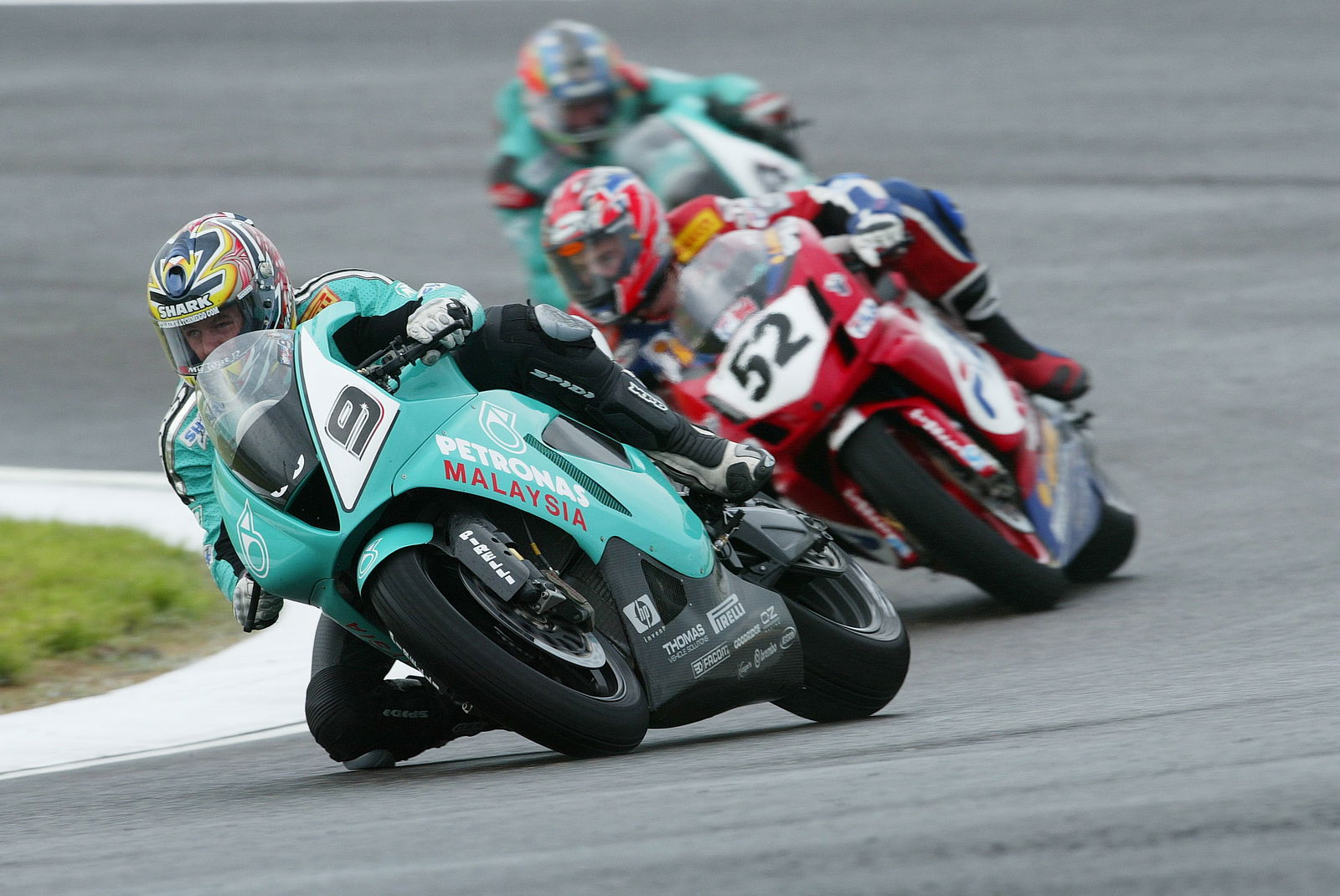
Petronas FP1
The Petronas FP1 was originally conceived in the early 2000s to compete in the MotoGP World Championship in a joint project between Malaysian oil giants Petronas and the Sauber Engineering team it title sponsored in Formula 1 at the time.
Instead, the model ended up racing in the WorldSBK Championship in collaboration with racing legend Carl Fogarty calling the shots, but the project ran into several problems. For one, the 899.5cc three-cylinder engine developed by Suter found itself 100cc too short to compete successfully against its larger displacement rivals after regulations were changed.
Despite this, the machine was fairly-competitive - helped in part by having the experienced Troy Corser – and even notched up a few podiums and pole positions along the way.
However, a more pressing issue was the homologation standard that stipulated at least 150 examples of the bike had to be produced to be sold commercially in order to qualify as a production model.
Petronas complied by meeting the quota with 75 remaining in Malaysia and another 75 ending up in the United Kingdom. However, rather against the spirit of the rules, few were ever ‘sold’ and even fewer ever ended up on the road. The tale took on a twist a few years ago when 60 brand-new models were found in storage in Essex
Petronas ploughed on into 2005 despite regulation changes making the FP1 woefully uncompetitive and with no chance of a successor ever likely to appear, the team quietly exited stage right.
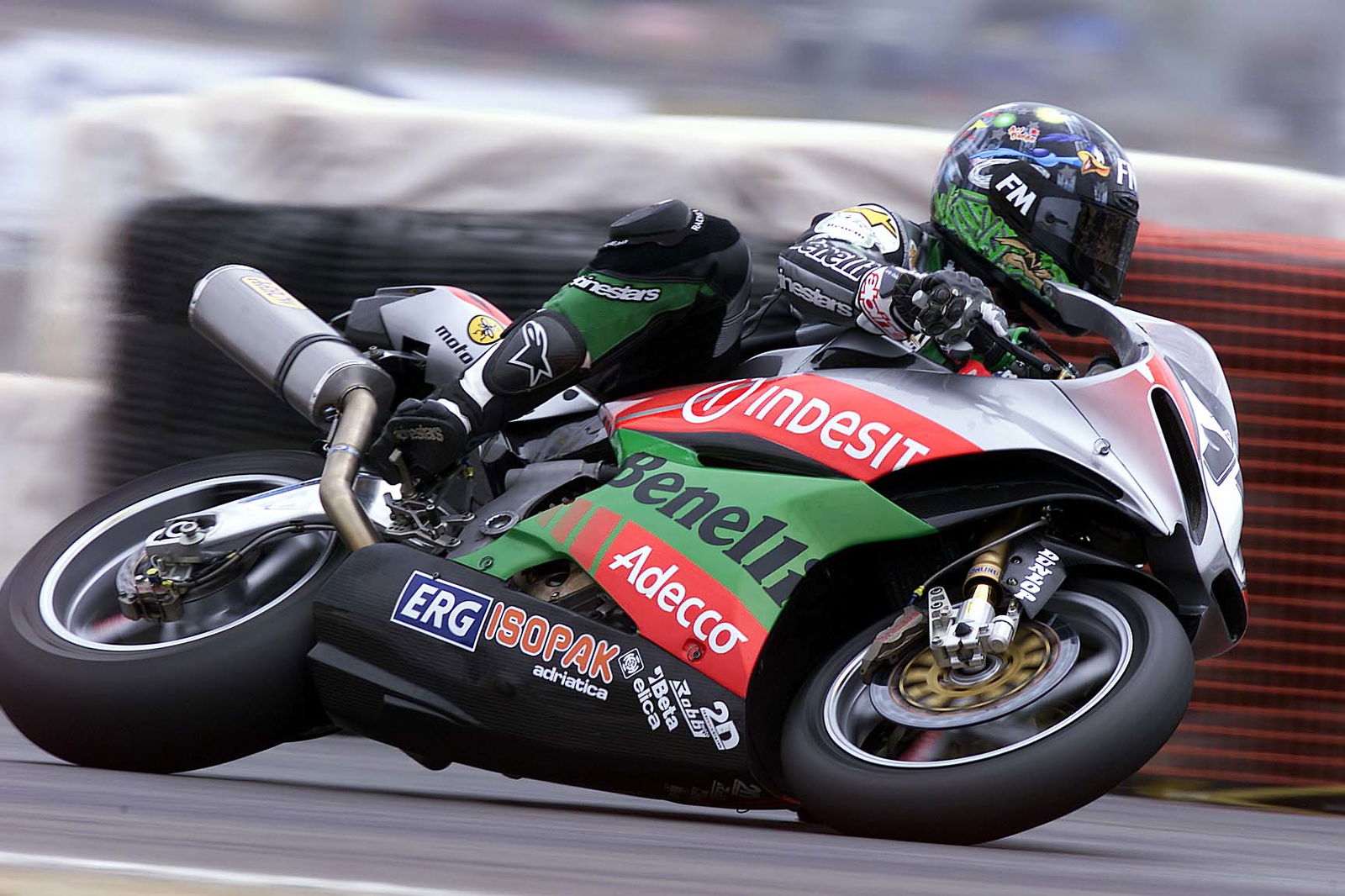
Benelli Tornado Tre
While there are many who still hold Benelli’s entry into the sportsbike fray with the Tornado Tre dear, it’s easier to forget the triple-cylinder machine went all the way to competing in WorldSBK as a factory entry.
What’s unusual about the Benelli Tornado Tre though is that it actually went racing before it entered production, hitting the track in 2001 and the road in 2002. The reason behind this was a hope that it’d speed up the development process and test some of its more unusual features, such as the under-seat radiators.
As it happens, the bike – in the hands of experienced Australian Peter Goddard – was modestly competitive, it’s 2001 mid-season arrival yielding a handful of points that could have been greater had the series not enjoyed such huge grid numbers at that time.
A fuller season followed in 2002 – despite missing some of the opening rounds – and Goddard became a fairly regular points-scorer with the bike proving more reliable on track that it arguably was off it.
However, despite that solid platform, Benelli didn’t invest in the WorldSBK project any further even if the Tornado stayed on sale until 2010.
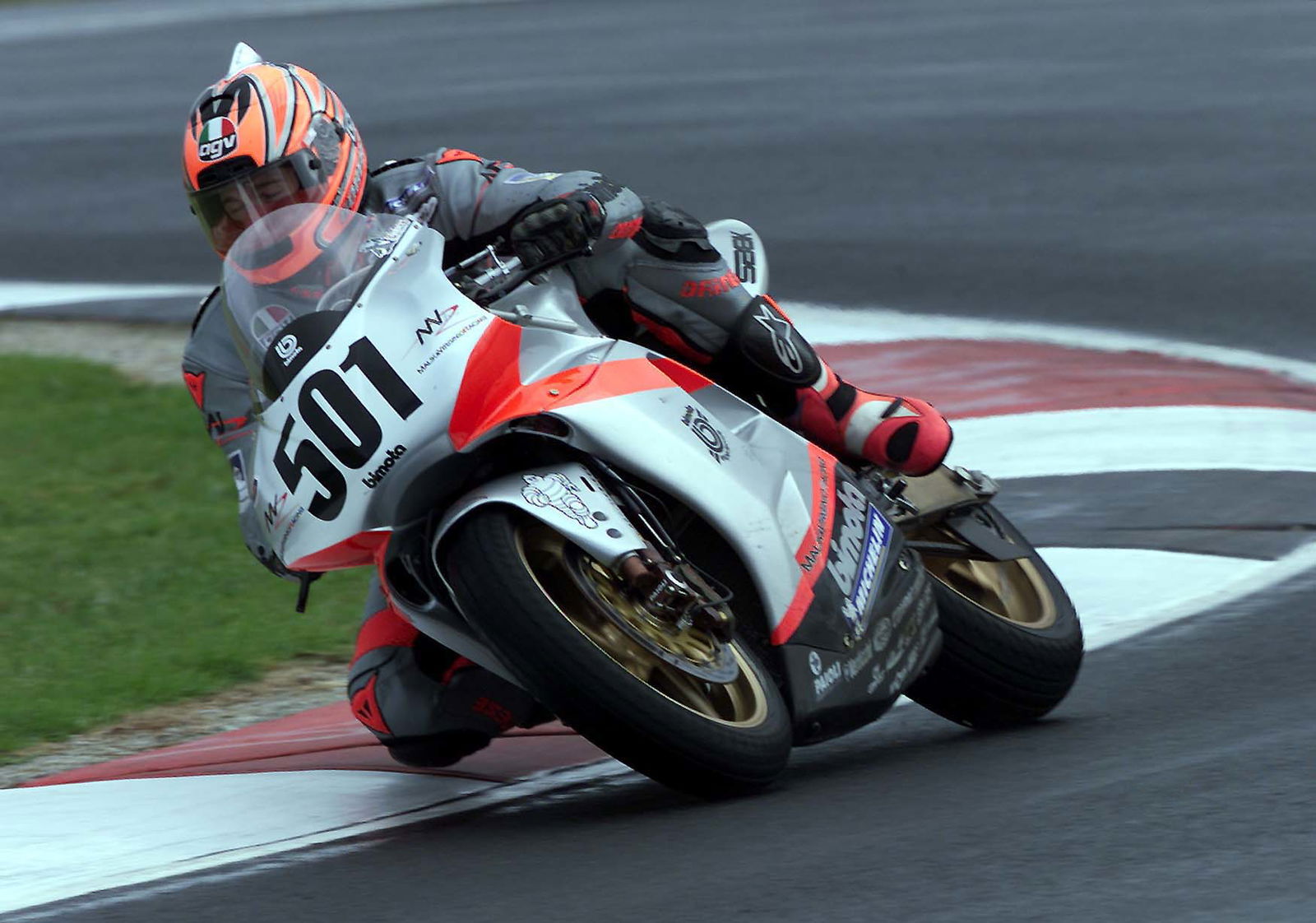
Bimota SB8R
While the Yamaha-powered Bimota YB4 was one of the founding ‘fathers’ of the inaugural WorldSBK Championship in 1988, it’s easy to forget that the Italian marque not only returned to the series in 2000 but even went on to win again.
Using the Suzuki-engined SB8R, Bimota rocked up to the start of the season with minimal testing but did have the wildest of wildcards in its armoury through rider Anthony Gobert. The Australian’s off-track exploits may go on to overshadow what he could achieve on-track, but there was no denying his fierce talent when the stars all aligned.
And that’s exactly what happened during round two at Phillip Island when he swept to an astonishing win on home turf in treacherous conditions.
Unfortunately it was a fleeting high for all with Bimota struggling for finance before the lifeline of a proposed sponsorship deal with Levis fell through (via an unscrupulous businessman who quickly stopped answering his calls) and the team folded having started just ten races.
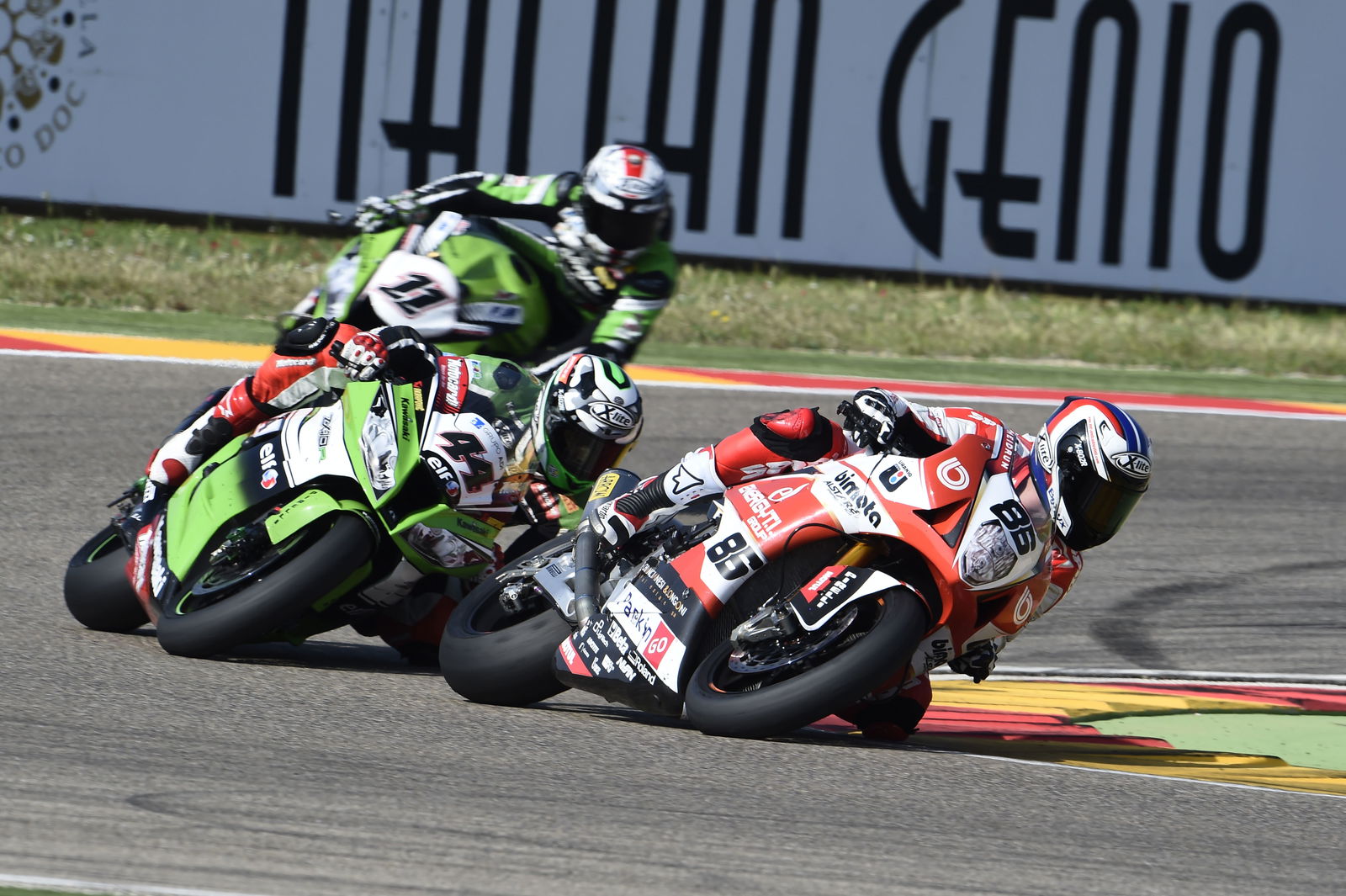
Bimota BB3
Arguably one of the stranger episodes to unfold in recent years was the brief return to WorldSBK by – once again – Bimota.
A company which, like a lot of the Italian motorcycle firms, had been sent down the path of destruction only to re-emerge with new investors and promises of a return to the glory days, Bimota’s latest owners wanted to use WorldSBK to publicise that everything was just fine with the marque.
Except everything wasn’t ‘just fine’ and it’s hard to believe exactly how WorldSBK played along for such a lengthy period of time. In short, Bimota planned to enter a pair of BMW-powered BB3s in WorldSBK’s new (and shortlived) EVO class for 2014, but in order to do so it would need to meet the homologation demand of 1000 roadgoing models.
As a company with traditionally low production capabilities this didn’t seem at all possible from the outset but WorldSBK bended the rules to allow the team to compete in the meantime without being allowed to register points.
As it happens, the bikes – campaigned by Ayrton Badovini and Christian Iddon and prepared by former Suzuki WorldSBK champions Alstare – were competitive and picked several de facto EVO class wins and even a few overall top ten finishes between them.
However, not only were Bimota nowhere near that 1000 bike total, they weren’t even close to the much-reduced 125 bike quota WorldSBK had later proposed. In fact, only 30 Bimota BB3s rolled off the production line.
The team was thrown out of WorldSBK by the mid-summer break.
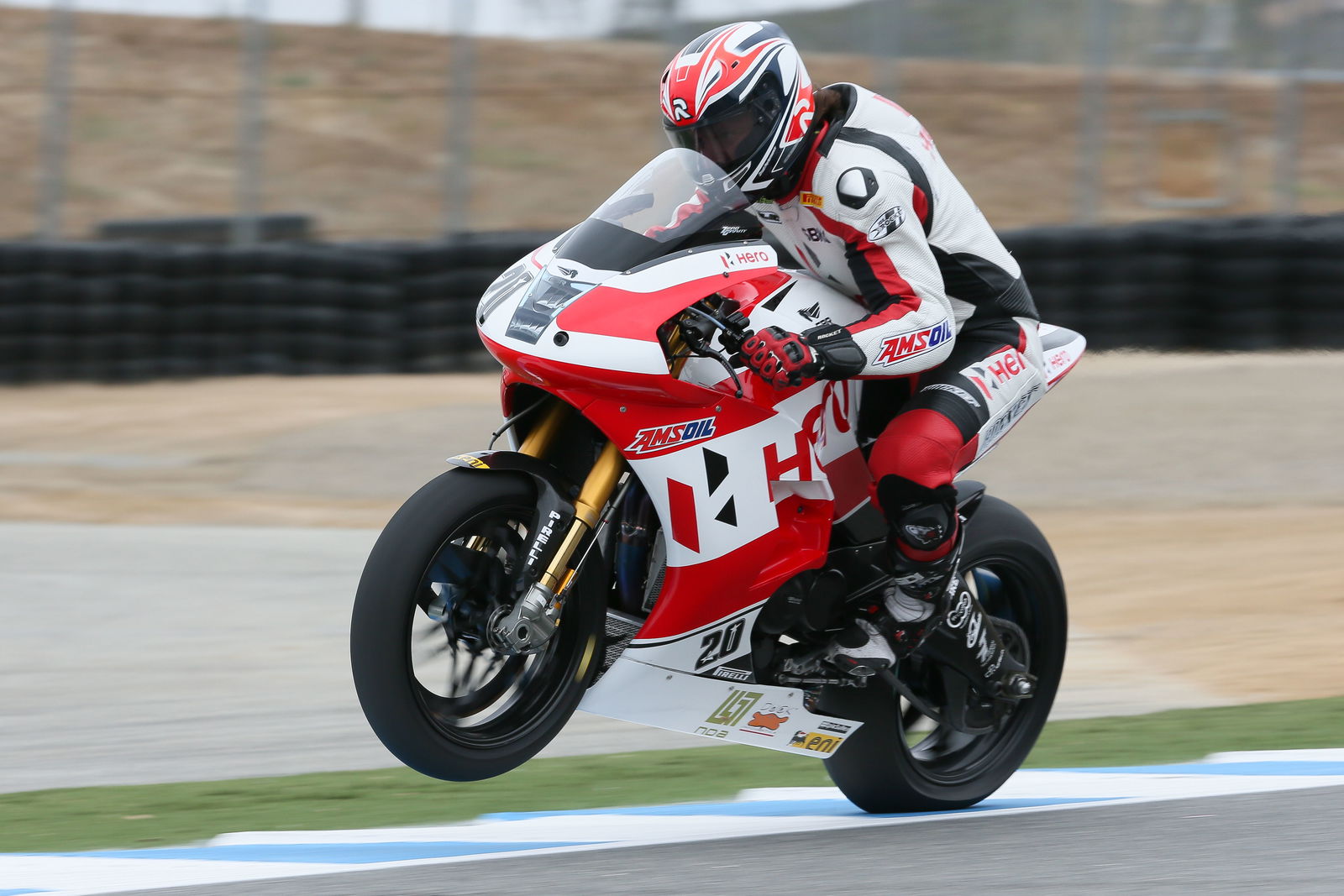
Erik Buell Racing 1190RX
For a championship that has occasionally struggled to muster up too much manufacturer interest over the years, the 2014 WorldSBK season proved to be a zenith in terms of entries with a record number of nine different manufacturers signing up.
Together with the incoming MV Agusta and Bimota above, WorldSBK got a surprise new all-American addition in Erik Buell Racing. Similar in mentality to Bimota – albeit with the actual means to produce motorcycles – EBR brought its new 1190RX to play using finance from new Indian owners Hero Corp.
However, EBR somewhat ambitiously attempted to keep the effort as American as possible at its hindrance with Geoff May and Aaron Yates simply not competitive enough to trouble their more European-racing experienced rivals.
The manufacturer did get some points on the board with a 14th place finish on home soil at Laguna Seca, though this was actually achieved by Larry Pegram on a wildcard privateer EBR entry.
Even so, EBR stuck it out for a second attempt in 2015 and even signed the talented Niccolo Canepa for a more competitive tilt, but just a few rounds into the season Hero Corp wanted out and the money stream dried up, forcing the team out after four events.
.jpg?width=1600)
MV Agusta F4 312 R
MV Agusta’s racing heritage needs no introduction, though this is more for its success on the grand prix stage than it is in production racing. It did put some effort into a works WorldSBK effort as recently as 2017, but its single-entry proved modestly competitive (and frightfully unreliable) at best.
Less well known is the previous generation F4 (the 312 R) did in fact complete a part-season in WorldSBK back in 2007 with Austrian racer Christian Zaiser. Reliability wasn’t a strong suit then either with Zaiser finishing just four of the 14 races he started before giving up.
Interestingly, the bike did go on to feature in the Superstock 1000 ranks in 2009 piloted by one Alex Lowes… but the team folded before he could make use of any of his young talent.
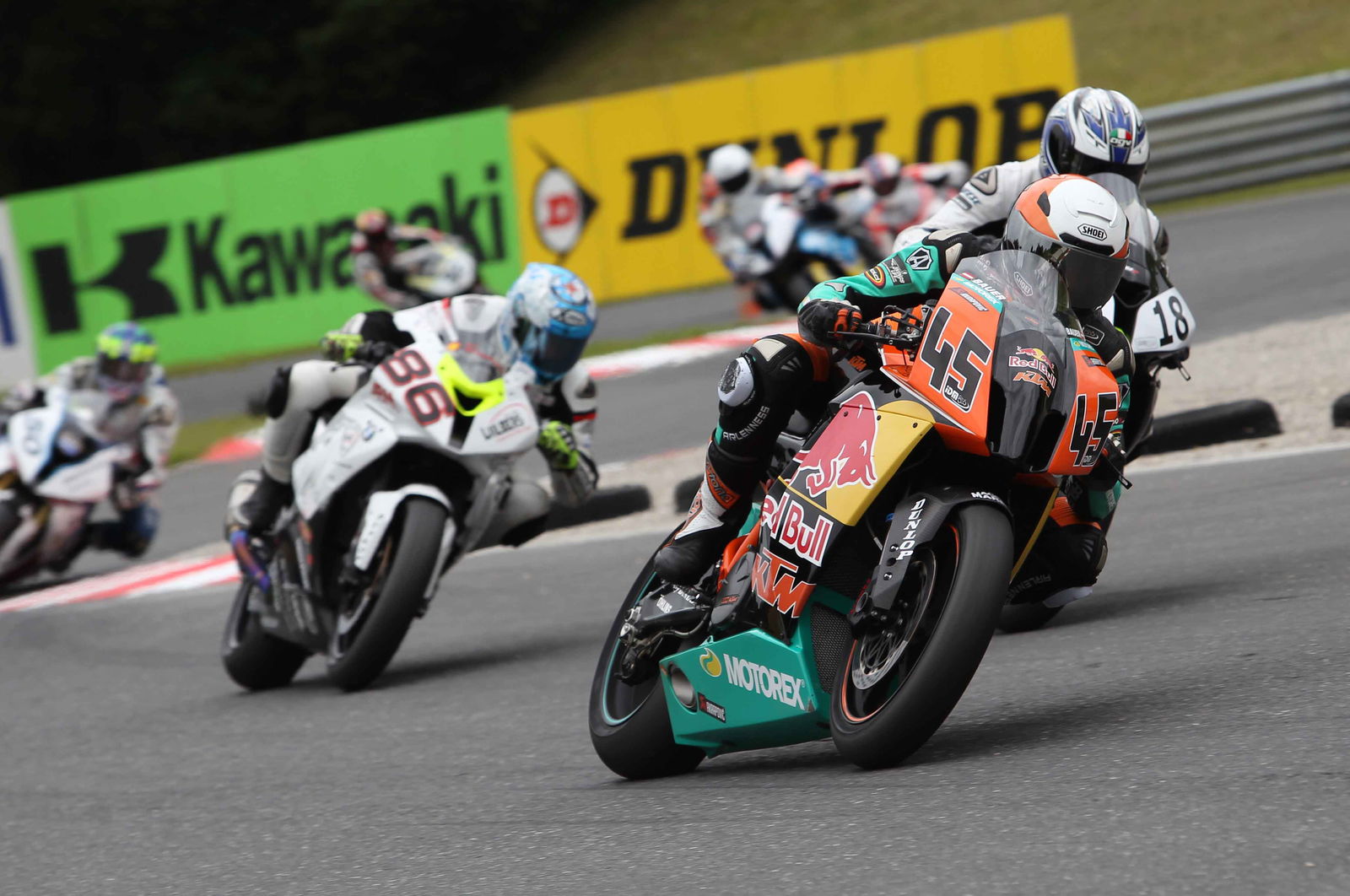
KTM RC8 R
OK, we’re cheating a little bit by including this here because as you knowledgeable people will of course recognise, the KTM RC8 never started a WorldSBK race.
However, it’s worth pointing out that the Austrian firm had full intentions to take its quirkily-styled but well-received 1195cc sportsbike to the premier superbike series but ultimately found itself in the wrong place at the wrong time.
Indeed, the long gestation period for getting the RC8 from concept to reality – first shown in 2005 and hitting the streets in 2010 – meant that by the time KTM could turn attentions to developing a race-version of it, the regulations were swinging away from it.
The launch of the Ducati 1098 pushed the bar to 1200cc and KTM found itself on the wrong rail to homologate a model that was useable on the road but competitive on track. In the end, the project was stillborn and KTM focused on its future MotoGP entry.
Even so, the RC8 did find some success in the Superbike ranks, proving competitive in the IDM German Superbike series, while it also started a few races in the Superstock 1000 series in what was supposed to act as a precursor to stepping up to WorldSBK.
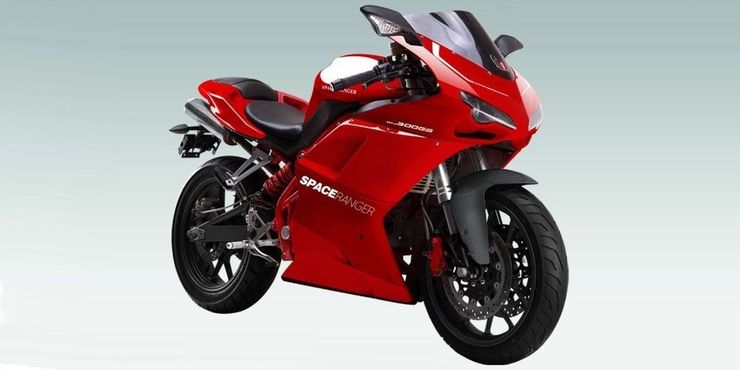
.jpg?width=1600)

.jpg?aspect_ratio=1:1)



